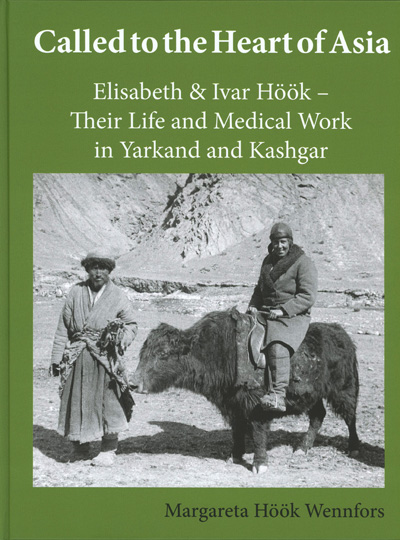“On 15 October we arrived in Leh. The second part of our caravan journey to Yarkand started on the 18th. Now the difficulties began. Fortunately, we had been able to repack our food boxes so that they were crammed to the corners. On the first day, we arrived at the foot of Khardung at 15,000 feet (about 4,500 metres). It was difficult to breathe, cold and windy. I was responsible for cooking that day. In the morning when I was to prepare breakfast, snow had fallen and the wind was howling. Oh, no! Still, it worked out! When we were ready to mount up, there were no horses. They had run off to Leh in the night. At long last, the caravan men managed to get them back so that we could start off. We were continually climbing as we rode until, at last, we arrived at the top of the pass at 17,600 feet (about 5,400 metres). Here it was full of snow. We had to dismount and walk downhill. As I was getting off my horse, I fell plump on my behind in the snow. It was very slippery ‒ and more so because I was wearing my new Gilgit-boots. The road downwards was laborious. We became so short of breath that we had to sit down in the snow, panting to catch our breath. Several of us were completely blue in the face.
“The horses were slipping and sliding down the steep paths. Some rolled over in the snow. Indeed, it was a troublesome journey for all of us.”
From Elisabeth Höök’s diary
“In spite of opposition and martyrdom, the missionaries worked faithfully in education and medical care. They translated and printed the Bible and other books, established churches and cared for orphans. Nothing was impossible for them. They functioned as pastors, doctors, teachers, builders and explorers. They had a passion to do good to every-one they met.”
From the Foreword by Bertil Svensson


